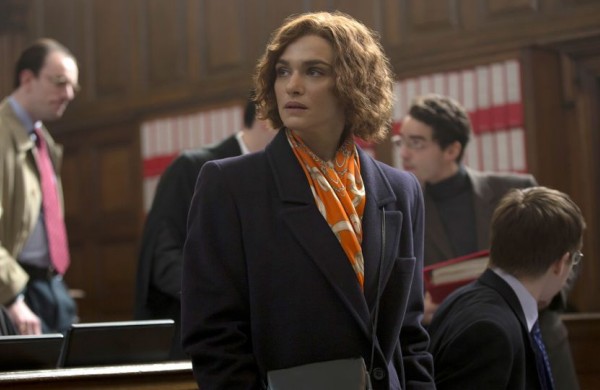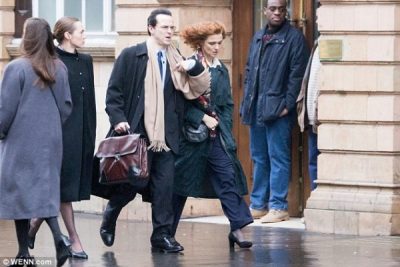
“Denial” – a film review by Gary Chew
The news is good when a messaging movie opens about the time the message really needs repeating.
I nearly had an overdose of message-movies growing up during and in the aftermath of WWII. Films of that period made quite a lasting impression on me; those especially about the Third Reich. As a boy, I remember worrying about one of my uncles who was then fighting in Europe… it was the winter of 1944/45; the stand off was called the Battle of the Bulge.
The elongated string of anti-Hitler films would likely stretch from here to the Moon and back. But they’ve grown somewhat hackneyed through the decades; except for Schindler’s List, and now…
 Denial, a new film from British director Mick Jackson. It cannot be considered hackneyed, although having much to do with Germany and WWII. The real story of Denial took place in the UK and the US just after this century began.
Denial, a new film from British director Mick Jackson. It cannot be considered hackneyed, although having much to do with Germany and WWII. The real story of Denial took place in the UK and the US just after this century began.
Deborah Esther Lipstadt (Rachel Weisz) is an American historian at Emory University in Atlanta. She’s written extensively about the Holocaust. David Irving (Timothy Spall) took umbrage with her work, Denying the Holocaust (1993), “History on Trial: My Day in Court with a Holocaust Denier” The rich Brit… such a denier most of his life… filed a libel suit against Lipstadt for publishing a claim that Irving is a pro-Nazi idealogue.
In the UK, when a person is sued for libel, the defendant must prove what they’ve spoken or written is fact, unlike libel law in the US. British libel law is somewhat like the US Supreme Court’s Citizens United ruling about big money in political campaigns in that, if you’re rich, it’s easier to keep someone from saying things about you not to your liking, whether they’re true or false. Such speech in the US enjoys more freedom.
 The most striking scene in Denial shows a well-known British libel law attorney named Richard Rampton (Tom Wilkinson) trudging across the actual grounds of Auschwitz. His legal aides are with him, as well as Lipstadt. (Rampton has taken her case.) There’s much dissension between Lipstadt and Rampton about how to handle the court proceedings to insure the historian/author will win. She’s a headstrong academic intellectual. He’s a very wise, experienced lawyer.
The most striking scene in Denial shows a well-known British libel law attorney named Richard Rampton (Tom Wilkinson) trudging across the actual grounds of Auschwitz. His legal aides are with him, as well as Lipstadt. (Rampton has taken her case.) There’s much dissension between Lipstadt and Rampton about how to handle the court proceedings to insure the historian/author will win. She’s a headstrong academic intellectual. He’s a very wise, experienced lawyer.
It’s difficult to suggest any actor in this picture is best. All are influenced by the English theater and film. High caliber performances are routine in that regard.
David Hare adapted the script from Lipstadt’s autobiographical book. Hare is top notch. To his credit, I give you a short list of his scripts: The Hours with Meryl Streep and Nicole Kidman; The Reader with Kate Winslet and Ralph Fiennes, both directed by Stephen Daldry; and Damage with Jeremy Irons and Juliette Binoche, directed by Louis Malle.
What I’m trying to leave with you is… Denial is a motion picture for grownups, a film likely not to make much connection in the minds of those currently rooting for a johnny-come-lately politician seeking high office who also enjoys the support of David Duke. Yes, Denial looks to be a film that’s running right on time.

- Movie Review: ‘The Glorias’ - September 28, 2020
- Movie Review: ‘I’m Thinking of Ending Things’ - September 10, 2020
- Movie Review: ‘The Burnt Orange Heresy’ - August 31, 2020

